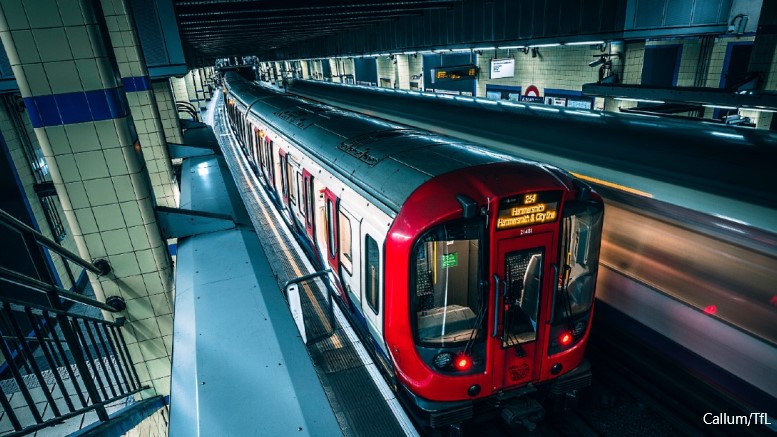
Transport for London (TfL) and the UK Government have reached an agreement that covers further support for the remainder of the financial year, to address its forecast funding shortfall arising from the loss of passenger revenue as a result of the coronavirus pandemic.
The announcement comes after the previous funding package ended on 17 October, though this deadline was then extended by the government until the end of October as talks took place.
Discussions on longer-term sustainable funding continue, but the new agreement will be worth approximately £1.8 billion, subject to actual levels of passenger revenue.
The funding package will provide TfL with a core amount of £1 billion for the period between 18 October 2020 and 31 March 2021, made up of an Extraordinary Support Grant of £905 million and incremental borrowing by Transport for London from the Public Works Loan Board of £95 million.
This level of funding assumes that the passenger demand over the support period will stay at approximately 65% of pre-coronavirus levels – higher than the ridership assumptions in TfL’s revised budget, published in July 2020, which forecast a funding shortfall of approximately £2 billion for the second half of 2020/21.
Due to the high level of uncertainty in predicting future passenger revenue, the funding package permits modification of the total amount of support, up or down, depending on actual passenger revenues. It is expected to provide approximately £1.8 billion of funding, based on the amount of passenger revenue assumed in TfL’s revised budget, but this could increase if actual revenues are lower than that.
TfL has committed to contributing approximately £160 million to the forecast funding shortfall. This will take the form of additional income or savings through a mixture of lower capital and operating expenditure supported by stronger financial control measures.
As a continuing response to the coronavirus pandemic, the current temporary changes to the Congestion Charge will be maintained, as will the current temporary removal of free travel in the morning peak for holders of 60+ / older persons freedom pass. Expanding the congestion charging zone to inner London has been ruled out by both the government and the Mayor.

Andy Byford, London’s Transport Commissioner, said: “Reaching this agreement with the government allows us to help London through this next phase of the pandemic.
“We will continue to work with the Mayor and the government on our longer-term funding needs.
“As always, our staff are working tirelessly to serve London’s people and businesses; supporting the city’s economy and providing an excellent, safe and reliable service to our customers every day.”

Secretary of State for Transport.
Secretary of State for Transport Grant Shapps added: “This deal is proof of our commitment to supporting London and the transport network on which it depends.
“Just as we’ve done for the national rail operators, we’ll make up the fare income which TfL is losing due to COVID. Londoners making essential trips will continue to be able to use tubes, buses, and other TfL services, thanks to this government funding.
“At the same time, the agreement is fair to taxpayers across the country. The Mayor has pledged that national taxpayers will not pay for benefits for Londoners that they do not get themselves elsewhere in the country.
“Over the coming months, as we look to move beyond the pandemic, I look forward to working with London’s representatives to achieve a long-term settlement, with London given more control over key taxes so it can pay more costs of the transport network itself. This agreement marks the first step towards that, potentially allowing a longer-term, sustainable settlement for TfL when the course of the pandemic becomes clearer.”
The two government special representatives will continue to sit on TfL’s board. A new government-chaired government oversight group will monitor the implementation of the agreement and the sustainability plan.
Crossrail / Elizabeth line funding is not included in this agreement, which is to keep current TfL services operating during the COVID-19 pandemic.


1 Trackback / Pingback